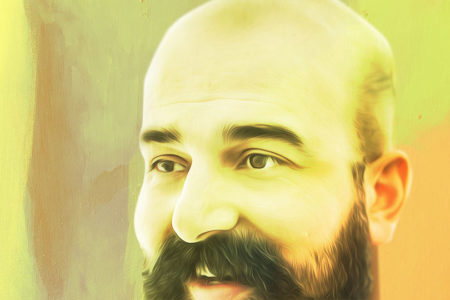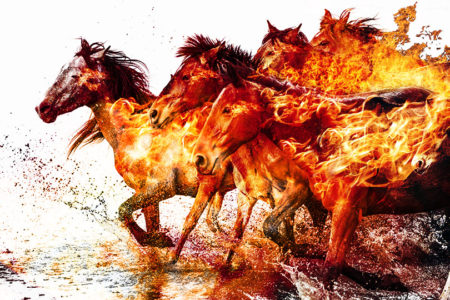Important Events & Miracles
God performed 28 MIRACLES through Elisha that affected people, prophecy, and politics and are recorded in the book of 2 Kings. Here are some of them.
Ministry to People:
• He provided oil so a widow could pay her creditors (4:1–7).
• He enabled a Shunammite woman to birth a son in her old age (vv. 8–17).
• He raised the Shunammite woman’s son back to life after he died (vv. 18–37).
• He cleansed a poisoned pot of stew at Gilgal for sons of the prophets (vv. 38–41).
• He multiplied loaves of barley to feed 100 men (vv. 42–44).
• He healed Naaman, a Syrian general, of leprosy (5:1–14).
• He made an iron ax head float on water so it could be recovered (6:1–7).
• He restored the Shunammite woman’s property (8:1–6).
Ministry Involving Prophecy:
• God’s judgment of Moab (3:4–27)
• Israel-Syria conflicts (6:8—7:20)
1. Israel captured Syrian raiders (6:8–23). Elisha gave Israel’s king valuable information that spared him from the raiders (vv. 11–12). The Lord blinded the raiders who were trying to capture Elisha at Dothan, and Elisha led the blind Syrian army to Samaria (v. 20). Instead of killing the Syrians, Elisha commanded that they be fed and sent back to Syria. These raiders never came against Israel again (v. 23).
2. Ben-Hadad laid bitter siege to Samaria (6:24—7:20). The people were reduced to eating their own children (vv. 25–30). The king of the city of Samaria wanted to kill Elisha. The prophet probably had counseled the king to repent in hopes the siege would end. When it did not, the king sought to kill him (vv. 31–33). Soon after, Elisha prophesied that food would abound the next day. The next day, four lepers discovered the Syrians had vanished. The siege was lifted, Elisha’s prophecy was fulfilled, and food became abundant (7:3–20).
• Restoring of the Shunammite’s property (8:1–6)
Ministry Involving Politics:
• Hazael (8:7–15). As Elisha journeyed to Damascus (c. 842 BC), he met Hazael, sent by ailing Syrian King Ben-Hadad to ask Elisha if he would survive his illness. Elisha said to tell Ben-Hadad he would recover but then prophesied of the evil Hazael would commit. Hazael returned to Damascus and told Ben-Hadad he would recover. But the next day, Hazael smothered him to death and took his throne.
• Jehu (9:1–13). Soon after Hazael became king, Elisha told one of the sons of the prophets to fill a flask of oil, go swiftly to Ramoth Gilead, and anoint Jehu as king of Israel. The man anointed Jehu and gave him explicit instructions to destroy the house of Ahab.
• Jehoash/Joash (13:10–19). Elisha’s final prophecy was given to Jehoash (Jehoash and Joash are variants of the same name) prior to Elisha’s death. Soon after Jehoash ascended to Israel’s throne (798 BC), Elisha became sick with the illness that would take his life. Jehoash visited the prophet and wept over his condition. Elisha commanded Jehoash to take a bow and shoot the arrow of the Lord’s deliverance over Syria as the prophet put his hand on the king’s hand. Then Elisha commanded the king to take the arrows and strike the ground, which he did three times. Elisha became angry the king didn’t strike five or six times, which would have meant Syria’s destruction (vv. 17–19). Instead, Jehoash won three victories and recaptured cities of Israel (v. 25).
• Final miracle (13:20–21). Elisha was buried in his homeland east of the Jordan River. In the spring, a man who had died was hastily buried on top of Elisha because raiders from Moab were invading the land. When the man’s body touched Elisha’s bones, the man immediately came to life and stood up. This miracle signified that God’s power continued to work through Elisha, even after his death.








